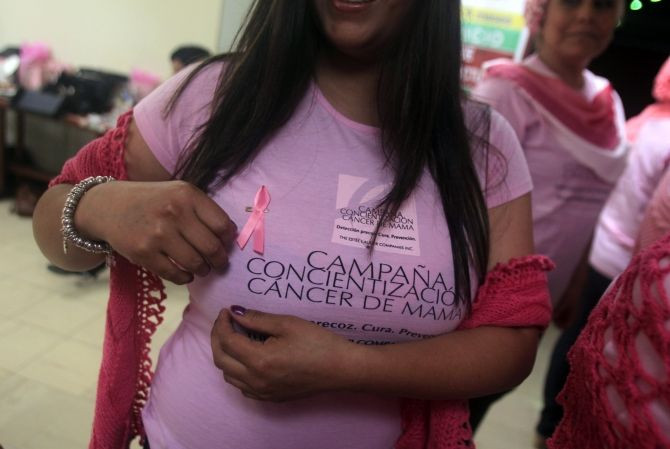National Breast Cancer Awareness Month: Breast Cancer During Pregnancy

As more and more women opt to focus on their career goals prior to having children, there are an increasing number of medical centers, such as NYU Langone Medical Center, that are diagnosing an increasing amount of women with breast cancer who are pregnant.
Though women are aware that their chances of being fertile reduce with age, women should also be aware of their increased risk for breast cancer as she ages, along with risk of breast cancer during pregnancy.
Although the rates of women being diagnosed with breast cancer during pregnancy are relatively low, approximately one in 3,000 pregnant women in America develops breast cancer, breast cancer is the most common cancer in pregnant women.
According to health experts the older women get, the greater the risk of her being diagnosed with breast cancer. In recent years women are waiting longer to start a family. Once a woman is pregnant it becomes more difficult for physicians to diagnose breast cancer for many reasons.
Once a woman conceives the density of a woman's breast makes it difficult to pick up irregularities due to higher levels of hormones such as estrogen and progesterone change during pregnancy. Additionally, the natural tenderness and engorgement of the breasts of pregnant women can deter early detection. Delays in diagnosis are very common, with an average delay of five to 15 months from the beginning symptoms, according to the National Cancer Institute.
"Diagnosing breast cancer is limited because of harmful effect of the radiation that can occur during mammograms and MRI's," said Yelena Novik, MD, Assistant Professor, Department of Medicine, NYU Langone Medical Center. "Once breast cancer is diagnosed then a team of highly qualified high-risk obstetricians and breast cancer specialists are brought in."
Dr. Novik explains that treatment during the first trimester of pregnancy is limited because of the fear of exposing the fetus to toxic drugs. The risk to endanger the development of the baby's internal organs orcause a miscarriage precludes use of anti-cancer drugs.
A team of high-risk obstetricians, a surgeon and an anesthesiologist all work together to decide on the best way for the women to undergo surgery. Mastectomy more often than not, is the treatment used. During a mastectomy all breast tissue is removed from the breast and, if necessary, lymph nodes may be removed from the armpits. Mastectomy is favored since it usually allows patients to avoid radiation that cannot be safely performed in pregnant women.
However, during the second trimester it is safe to treat the expecting mother with anti-cancer drugs chemotherapy. "Women should be aware about the risk for breast cancer during pregnancy," Dr. Novik said.
Traditionally speaking women who never had children are at higher risk compared to women who have children Dr. Novik explains. In contrast, women experiencing their first pregnancy at a later age are not necessarily protected against breast cancer better compared to women who had never had children.
"Breast self-exams can help pregnant women identify abnormalities. Non-pregnant women who chose to do breast self-exams should do these once a month at the same time during the cycle," Dr. Novik recommends.



























